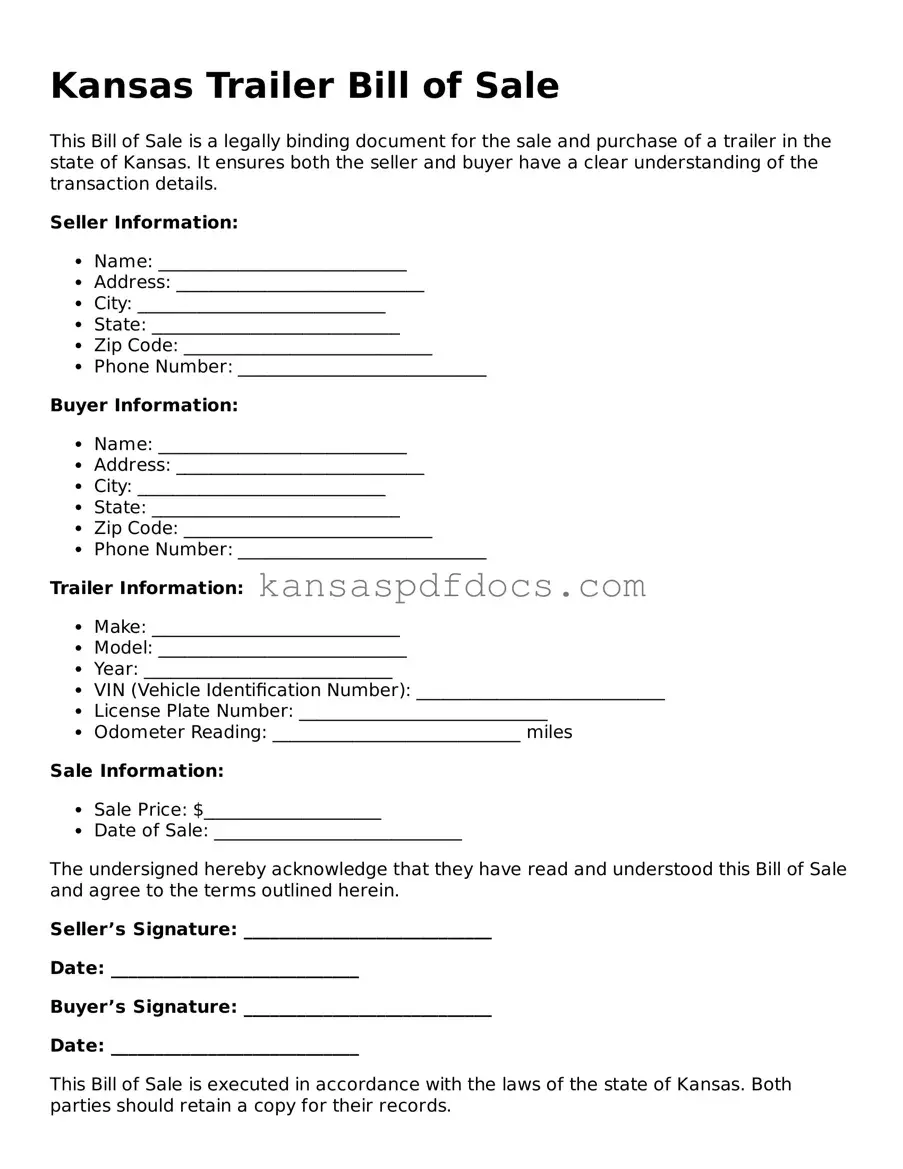Valid Trailer Bill of Sale Template for Kansas State
The Kansas Trailer Bill of Sale is a legal document that records the transfer of ownership of a trailer from one party to another. This form serves as proof of the sale and includes important details such as the buyer's and seller's information, trailer specifications, and the sale price. Properly completing this document ensures a smooth transaction and protects both parties involved.
Access This Form Now

Valid Trailer Bill of Sale Template for Kansas State
Access This Form Now
Your form isn’t ready yet
Edit and finalize Trailer Bill of Sale online without printing.
Access This Form Now
or
Get PDF Form
